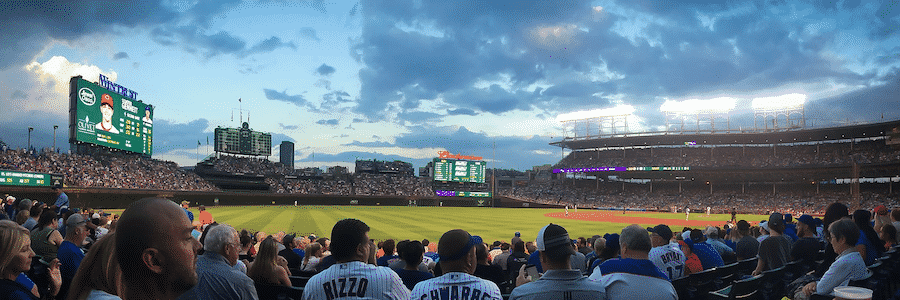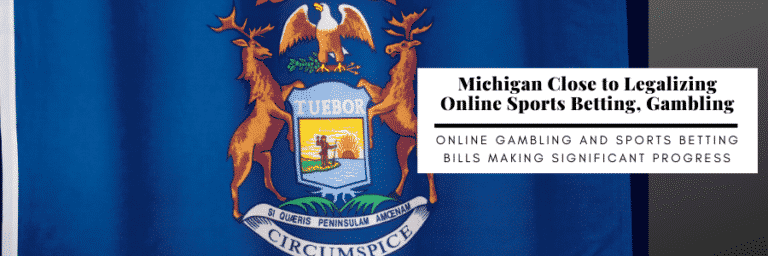Illinois Governor Signs Sports Betting Bill into Law

Legal sports betting and a long-awaited casino in Chicago: These are just two of the bigger developments coming to Illinois now that Governor J.B. Pritzker has signed an 816-page, $45 billion infrastructure plan into law.
Four wide ranging measures were passed during the spring legislative session, one of them being a state-wide gambling expansion. The other bills increased the price of cigarettes by a dollar, increased the price of electric car registration by $250 and enacted a 15% tax on e-cigarettes.
Illinois Gambling Expansion
The Illinois gambling landscape is set to undergo sweeping changes now that Governor Pritzker has signed SB 690 into law.
Major changes coming to the Illinois gambling industry include:
- Legal in-person and mobile sports betting
- Six new casinos, including one in Chicago
- An increase in the number of video gambling machines.
- An increase in the maximum bet at video gambling machines.
- Turning state racing tracks into racinos, allowing casinos to operate at three existing tracks and the construction of two new racinos
- Increasing the number of gambling positions (seats from where to place a bet inside a gambling establishment) from the existing 44,000 to 80,000.
“Within two years, Illinois could have more than 7,000 video gambling establishments, 5,000 lottery-like sports betting kiosk locations, 16 casinos, five racinos and online sports gambling accessible on millions of mobile phones,” predicts ProPublica.org. ”The bill even allows video slot and poker machines at Chicago’s airports, O’Hare and Midway.”
Sports Betting in Illinois
Governor Pritzker signed the Illinois sports betting bill into law on Friday in the state capitol of Springfield.
The sports betting bill had been tacked onto a large infrastructure capital bill to give it a much better shot at passing as opposed to standalone legislation.
Sports betting will be allowed across the state via mobile devices and at physical sportsbooks inside professional stadiums, race tracks and casinos.
The aim is to see Illinois sports betting launched by the end of 2019/beginning of 2020.
The law mandates that licensed sportsbooks only purchase “official” data league if they want to offer live in-play wagering.
A number of controversial provisions are found in the new sports betting bill.
First, it contains a bad-actor clause that will keep online providers such as FanDuel and DraftKings out of the market for at least 18 months.
These online sports betting giants have been active in the Illinois daily fantasy market all this time despite the strong objections of former Attorney General Lisa Madigan. The 18-month penalty clause seeks to give local casinos a head start against the online-only operators. However, out-of-state providers may partner with a race-track, sports venue or casino during this time to offer in-person and mobile betting.
At the end of the penalty period, FanDuel and DraftKings will be allowed to operate independently online. They will need to apply successfully for one of the $20 million online wagering licenses from the state.
Horse racing tracks and casinos will be allowed to apply for $10 million sports betting licenses in the meantime. As soon as they receive approval for a license from the Illinois Gaming Board, they will be able to begin laying odds. These establishments will also be able to offer slot machines and other games of chance.
Second, customers will be required to visit a physical casino in-person to apply for an account to bet online. Only after signing up in person will customers be able to place mobile wagers from anywhere inside state lines.
Fans of horse racing betting will be pleased to note that there are plans to build a new racino in Cook County. In addition to horse racing, the racino will also offer a casino with a full suite of slot machines, table games and sports betting.
Casino Coming to Chicago
Gambling proponents see a casino in the middle in one of the biggest cities in the United States – Chicago – as an excellent opportunity to bring serious revenue to the state. Plans to build a casino in Chicago have been in the pipeline for years, and now it seems to be closer to reality than ever before. The casino will be one of the largest in Illinois and will feature 4,000 seats at slot machines and gaming tables.
However, some believe that things won’t be as rosy as predicted. The operator chosen to build the only casino in Chicago (which also comes with rights to offer gambling machines in the airport), will be forced to cough up $120 million in licensing and other fees. In addition, two-thirds of the casino’s revenue will be divided between the city and the state.
Penn National Gaming Chief Executive Tim Wilcott predicts that the high tax rate and other tough conditions facing the potential operator will make the new casino project a difficult one to sell.
“An already saturated market is going to get a lot more supply,” Wilmott said in an interview with ChicagoBusiness.com. “It’s going to make the Chicago casino a very difficult investment to make.”
The Governor has said he wants the casino to be located outside the CBD, preferably in what he calls a “forgotten” area.
“I’ve talked about communities that have been left out, left behind, communities where we need to have some job creation and where this might be beneficial, and I think we can all point to areas that fit that bill in the city,” Pritzker told the Chicago Sun Times.
”Rather than call them out, I just would prefer that we’re doing it in areas that haven’t gotten the benefits of all the development that’s occurred in downtown and areas very near to downtown.”
The final decision regarding the Chicago casino’s location, however, lies with the newly elected mayor Lori Lightfoot.
A potentially suitable spot could be the vacant former Michael Reese hospital, which has good transit and automobile access. However, constituents of Bronzeville are firmly against the idea of a casino in their midst. Other lawmakers have expressed their interest in having the casino located in their jurisdictions, but none of them quite hit the sweet spot – good access and not too far from downtown’s tourists and business travelers.
Protecting Illinois Gamblers
Ahead of the rollout of the giant Illinois gambling expansion plans, American Gaming Association CEO Bill Miller pointed out the importance of protecting consumers in the state.
“Today, Illinois became the 17th US jurisdiction to legalize sports betting, joining a growing number of states that have taken action since the Supreme Court deemed PASPA unconstitutional last year,” he said in a statement.
He said that as the state rolls out its sports betting framework, it is critical that sports teams and other newcomers to the gaming industry follow the lead of Illinois’ gaming operators by advancing responsible gaming practices. This is critical to protect customers, bets, and game integrity, he stressed.
Opposition to New Gambling Plan
As can be expected, a gambling bill as expansive as Illinois’ doesn’t come without opposition.
Conservatives have blasted the new plan, despite an assurance from the Governor that the expansion will result in 10,000 new jobs. He also expects $150 million to come from an increase in video gaming terminal taxes, $500 million from license fees from casino and sports betting, and $10 million from sports wagering revenue.
“While the governor and legislators are celebrating the signing of the bill, a large part of the funds for new buildings will come from Illinois residents losing their money in video gambling machines, betting on sports, gambling at stadiums and on cell phones and at more casinos,” wrote the executive director of the Illinois Church Action on Alcohol and Addiction Problems, Anita Bedell. “This is a terrible way to raise money.”
Surprisingly, the Illinois Casino Gaming Association has also given the new expansion bill a lukewarm reception, calling it “complicated” and predicting that it will be “difficult to implement.” The association also points predicts the revenue projections are much higher than what the state will see in reality.
Fifth State to Legalize Sports Betting in 2019
Since the beginning of 2019, Montana, Iowa, Indiana and Tennessee have legalized sports betting. Illinois becomes the fifth to do so.
Other states that are looking likely to introduce sports betting this year include Maine, with a bill on the way to the desk of Governor Janet Mills, and Colorado (subject to a positive November ballot).
A total of 15 states and the District of Columbia have legalized sports betting in the United States. The majority plan to roll out their industries this coming fall – just in time for the NFL season.
Tania brings over 10 years of experience as a gambling industry reporter to BettingUSA.com, providing frequent news coverage and coverage of current events.





